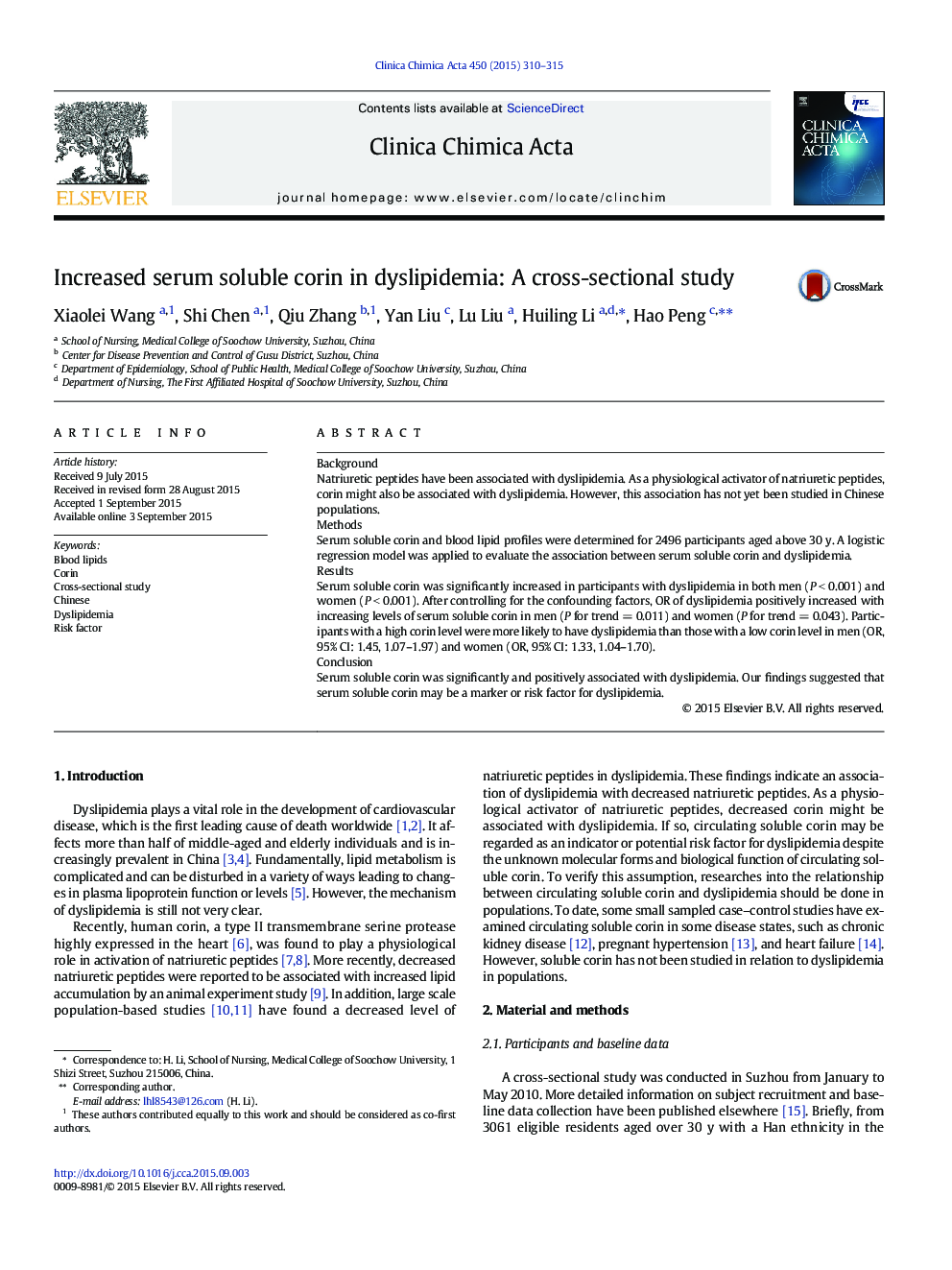| Article ID | Journal | Published Year | Pages | File Type |
|---|---|---|---|---|
| 1965236 | Clinica Chimica Acta | 2015 | 6 Pages |
•We first studied the association of serum soluble corin with dyslipidemia in humans.•We found a positive association of serum soluble corin with dyslipidemia.•Corin may be a risk factor or biomarker for dyslipidemia.
BackgroundNatriuretic peptides have been associated with dyslipidemia. As a physiological activator of natriuretic peptides, corin might also be associated with dyslipidemia. However, this association has not yet been studied in Chinese populations.MethodsSerum soluble corin and blood lipid profiles were determined for 2496 participants aged above 30 y. A logistic regression model was applied to evaluate the association between serum soluble corin and dyslipidemia.ResultsSerum soluble corin was significantly increased in participants with dyslipidemia in both men (P < 0.001) and women (P < 0.001). After controlling for the confounding factors, OR of dyslipidemia positively increased with increasing levels of serum soluble corin in men (P for trend = 0.011) and women (P for trend = 0.043). Participants with a high corin level were more likely to have dyslipidemia than those with a low corin level in men (OR, 95% CI: 1.45, 1.07–1.97) and women (OR, 95% CI: 1.33, 1.04–1.70).ConclusionSerum soluble corin was significantly and positively associated with dyslipidemia. Our findings suggested that serum soluble corin may be a marker or risk factor for dyslipidemia.
